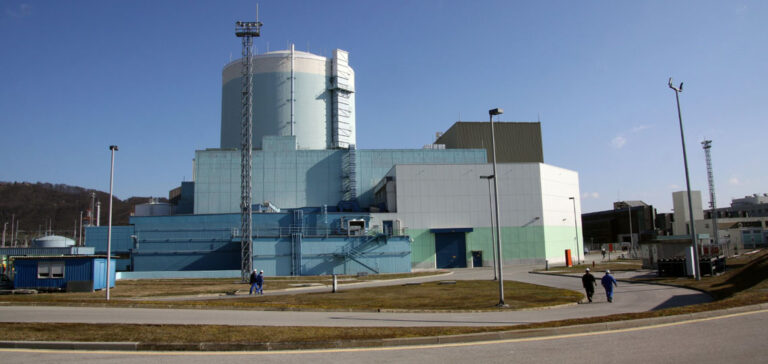The Krsko Nuclear Power Plant in Slovenia was put into emergency shutdown on October 5, 2023. This suspension was caused by a leak detected in the primary containment system. The shutdown, it is explained, is necessary in order to identify the precise source of the leak and undertake the appropriate remedial measures.
A Vital Tool for the Region
The Krsko nuclear power plant, commissioned in 1983, is a crucial energy tool for both Slovenia and Croatia. Built during the Yugoslav era, this Westinghouse-type reactor plays a cardinal role in the energy fabric of both countries, supplying 20% of Slovenia’s electricity needs and around 15% of Croatia’s. In fact, the plant has extended its operation well beyond its originally planned lifespan, thanks to an agreement between Slovenia and Croatia to extend its operation until 2043 and to consider the construction of a second reactor, despite controversies linked to its age and seismic vulnerability.
The Krsko Story: Between Innovation and Safety Challenge
The plant’s history is rooted in the ambitions of the 1970s, when Yugoslavia, in a context of energy expansion, sealed an agreement with the American company Westinghouse to equip the plant with a pressurized water reactor (PWR). Although initially planned to operate for 40 years, the plant has gradually proved its importance in the energy network of Slovenia and Croatia, supplying 37% of Slovenia’s electricity production in 2019.
However, Krsko is not an incident-free plant. In June 2008, a leak in the primary circuit of the reactor’s cooling system led to an emergency shutdown and triggered the European alert system on radioactive risks (ECURIE), despite the fact that, according to the Slovenian authorities, no radioactive material had leaked into the environment. Information management around this incident generated controversy, revealing shortcomings in crisis communication at national and international level.
The Incident of 2023: A Revelation of Current Issues?
In the current context, the shutdown of the plant following the detection of the new leak puts questions of safety and transparency center stage. The last preventive shutdown, following an earthquake in Croatia in 2020, is still fresh in people’s minds, adding an extra dimension of concern and vigilance to the current incident.
The challenges posed by the ruling are manifold. On the one hand, Slovenia and Croatia are facing a significant reduction in their energy supplies, which could have far-reaching implications for their power grids and economies. On the other hand, questions about nuclear safety management and transparent, responsible communication with citizens and neighboring countries are back in the spotlight.
Towards a Safer Energy Future?
The story of the Krsko power plant highlights the tensions between dependence on traditional energy sources and the need for impeccable safety and transparency. Although controlled, this incident could prove to be a catalyst for revisiting national and regional energy strategies, particularly in the European context, which is increasingly moving towards a decarbonization of its energy mix.
By analyzing past and present incidents at Krsko, it seems imperative to thoroughly explore energy alternatives that could alleviate dependence on aging nuclear facilities. The introduction of renewable solutions, combined with a long-term nuclear phase-out strategy, could not only meet safety requirements but also contribute to achieving climate objectives.
As investigations into the 2023 incident progress, all eyes will be on Slovenia and Croatia, offering a unique opportunity to reimagine a sustainable, safe and resilient energy future.






















